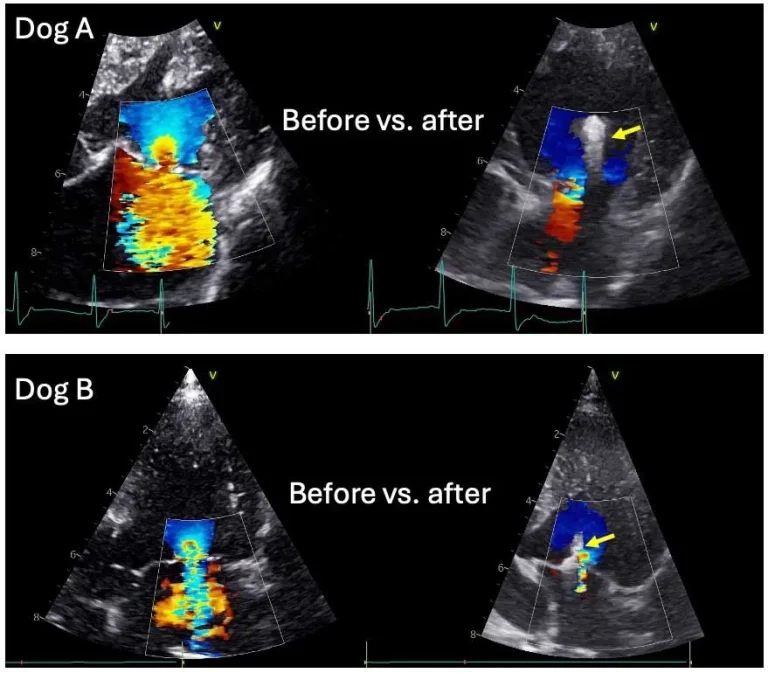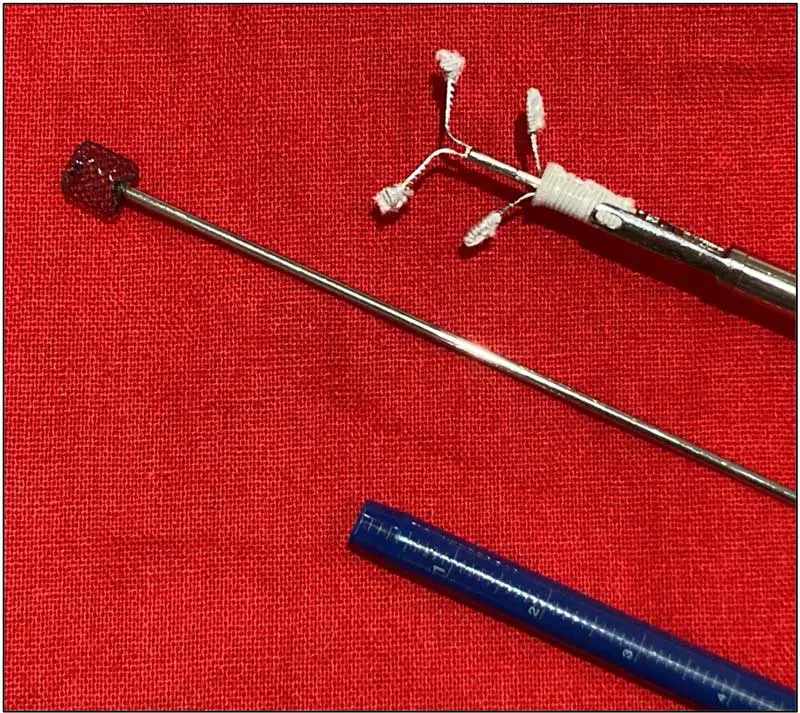25 Nov 2025
BVS’ cardiology team has undergone intensive training in the procedure and will be supported by experienced surgeons in the programme’s first year.

Echocardiographic images from two dogs, acquired before and after TEER surgery. In both cases, a significant reduction in mitral regurgitation (illustrated using colour flow Doppler) was observed, from over 65% of stroke volume to less than 30% after the procedure. The position of the V-clamp on post-surgery images is identified with an arrow.
A “pioneering”, minimally invasive treatment for mitral valve disease (MVD) is now available at Bristol Vet Specialists (BVS).
Developed in collaboration with the RVC, the procedure – transcatheter edge-to-edge repair (TEER) – is said to offer significantly faster recovery times, require lower doses of medicine and be much more affordable compared with open-heart surgery.
BVS is said to be among the first multidisciplinary specialist centres in Europe to offer it, and its TEER programme is supported in its first year by surgeons experienced in the procedure from Europe and Asia, in collaboration with the RVC’s heart surgery team.
Guided by real-time 3D echocardiography, TEER is performed on a beating heart via a small thoracotomy, typically 6cm to 8cm in length.
It uses a specially designed “V-Clamp” device which unites the mitral valve leaflets to reduce the severity of mitral regurgitation.
It is said dogs undergoing TEER have minimal need for intensive care and are usually discharged within 48 hours; a chest drain is used post-operatively for six to 12 hours, and many patients can return to short walks within 24 hours.
The procedure has “highly encouraging” clinical outcomes, with 95% of dogs successfully discharged and 80% surviving two years – which just one in seven dogs are expected to reach post-heart failure diagnosis – post-surgery, with some able to discontinue diuretics.
Open-heart surgery using cardioplegia and cardiopulmonary bypass – regarded the gold standard for mitral valve repair – also offers survival rates exceeding 90% but is a costly and risky procedure that has a long recovery period.

Kieran Borgeat, RCVS specialist in cardiology at BVS, said the procedure “represents a significant step forward” in managing canine MVD.
He continued: “Although TEER does not reduce mitral regurgitation as dramatically as open-heart surgery, the majority of dogs will benefit from a significant reduction in mitral valve leakage.
“While open-heart surgery remains the gold standard, it’s not feasible for every patient due to cost, risk, or recovery time.
“TEER offers a practical, more affordable, lower-risk alternative – with excellent outcomes for many dogs.
“We have seen some impressive results so far, and we believe that TEER is a great option to extend life and improve quality of life for a large number of dogs with MVD.”
MVD is said to account for approximately 75% of all cases of canine cardiac disease, with around 30% of affected dogs progressing to severe mitral regurgitation, heart enlargement and signs of heart failure.